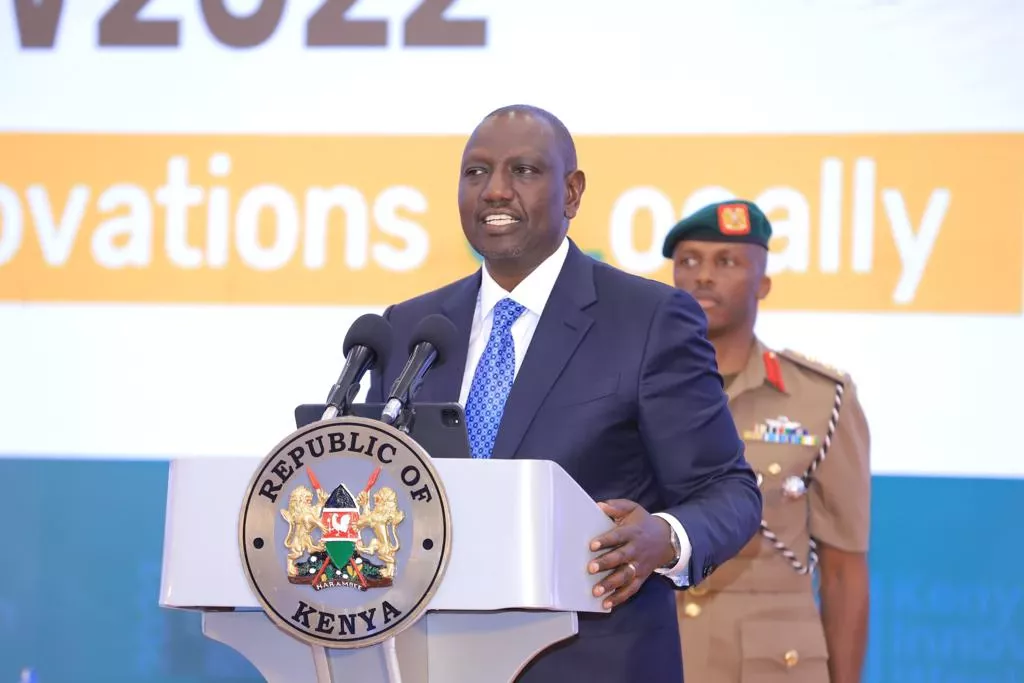Kenya Innovation Week: Why we must take risks to make economic and social progress.
By Teresa Bosibori and Eugene Gikonyo
Dec 08, 2022
This year’s Kenya Innovation Week (KIW), held from 6th to 8th December in Nairobi, focussed on innovations’ potential to develop economies and improve individual livelihoods. Through panel discussions and start-up exhibitions, centred around the theme ‘Connecting Innovations GLocally”, the event highlighted Kenya’s successes and failures in key areas and charted a way forward. The phrase ‘Leave No One Behind’ became something of a conference mantra, reflecting a consensus that success is generated through creating and supporting innovations that promote a diverse and equitable society.
Keynote speeches celebrated the results of the UK-Kenya governmental partnership, which has nurtured an environment of experimentation and supported a diverse range of innovations. One example of this is mobile phone money transfer business M-Pesa, which has become a national and global success story. Building on this momentum, the UK government has continued to support innovations that drive development progress, demonstrated by GIF’s investments in Mr Green Africa, Buildher and ImpactEd. Speakers at KIW also noted that innovation ecosystems require robust institutions capable of converting technology and ideas into tangible economic and social progress. All this must be underpinned, of course, by demand and consumer-led commercialisation strategies.
It is critical to de-risk innovations if they are to achieve long-term financial and commercial sustainability. This strategy resonates with GIF’s funding approach. We aim to provide catalytic financial support across funding stages, as we are specially positioned to play a critical role in bridging the multiple ‘pioneer gaps’ in an innovation’s journey. We also support the development of frameworks that outline the innovation’s outcomes. Ultimately, we create a robust and collaborative ecosystem for innovations to leverage partnerships and advisory support.
President Ruto to introduce legislation to support innovation
Governments are enablers of innovation: they can create policies that are conducive to a successful business environment and they will be the ultimate decision-makers on the adoption of public sector innovations. Innovations seeking to scale through government should ensure that they are addressing a specific need of the target institution/ministry and align adoption to government priorities and policy windows. To this end, the President of the Republic of Kenya, William Ruto, used KIW to demonstrate his government’s commitment to tabling a start-up bill and the development of a start-up fund to de-risk early stage innovations.
GIF’s role: shifting mindsets towards risk taking
Over the course of the week, there was a clear consensus on the need to increase investment in innovations. The message for innovators and their partners was that we need to work on shifting mindsets, especially amongst actors, such as governments, who have the ability to unlock the potential to scale.
One positive takeaway is that the start-up ecosystem now recognises failure as part of the entrepreneurial journey: it’s how we learn and evolve our thinking as we aim for success. In the same vein, public sector innovations should create an environment that enables experimentation and accepts a certain amount of failure. Public sector innovations seeking to improve lives should be about progress, not perfection. This is a philosophy that we at GIF have embraced.
That’s not to say we will lose out. Investing in innovation is inherently risky, but it can also yield astonishing results. Our investments are already yielding tangible benefits at scale, and demonstrating how investing in innovation for development pays off.
